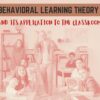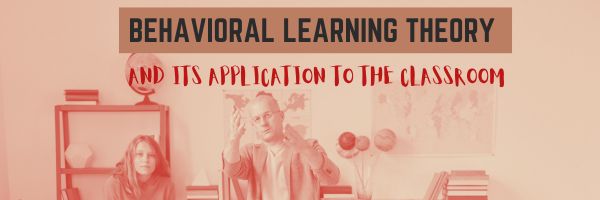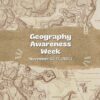Year: 2023
E-Books and Online Libraries in Modern College Education
E-Books and Online Libraries in Modern College Education
One of the most significant archives of human knowledge and learning’s quiet companions, libraries have made an undeniable impact. As far back as history reaches, they played a vital role in helping students. We wouldn’t be where we are without them. Their shelves are stacked with the wisdom of civilizations, offering a passage through time for anyone willing to explore them. Libraries have always been a trusted educational sidekick since people started learning stuff. You might think libraries are withering away, but it’s not true. They’ve changed into online treasure hubs to help kids access education. Further, we will examine how libraries and schooling have always been connected and how important they are in shaping people’s paths and changing lives.
Share this:
Happy Thanksgiving! Taking a Break Nov. 17-Dec. 1
I wish you and all yours a wonderful Thanksgiving Break. Enjoy your family and friends, take time to rest.
I’ll be around only in a limited way until December 1. Then, I’ll be back fulltime.
Share this:
Teacher-Authors: What’s Happening on my Writer’s Blog
A lot of teacher-authors read my WordDreams blog. In this monthly column, I share a popular post that writer readers enjoyed:
For those reading this article who are either established authors, in-training, or anything in between, you probably have already figured out that the learning curve to become a writer is steep and endless. I’ve read a ton of how-to books, attended more than my share of conferences, and meet with fellow writers twice a month to discuss our passion. In each of these situations, no matter how often I attend, I learn something new. So it is no surprise that I also find epiphanies in social media. Some streams offer one person’s insight that addresses a chronic problem I also have. Others answer questions I couldn’t put into words enough to get an answer from anyone else.
Tips
Here are some of the best writing tips I’ve gathered on social media in the past year:
Share this:
14 Apps and 2 Projects for Thanksgiving
Need a few websites and apps to fill in sponge time? Here are Thanksgiving websites that will keep students busy and still teach them:
- Berenstein Bears Give Thanks (app)
- Canadian Thanksgiving
- Online/Offline Thanksgiving activities
- Plimoth Plantation–a field trip of a Pilgrim’s life. Included on this real-life site is a video of the Pilgrim’s crossing to the New World.
- Thanksgiving edu-websites–CybraryMan
- Thanksgiving Games
- Thanksgiving games and puzzles
- Thanksgiving games–Quia
- Thanksgiving Lesson Plans
- Thanksgiving Wordsearch
- Turkey Templates — activities in Google Slides
If you’re an iPad school, try one of these:
- Berenstein Bears Give Thanks
- Primary Games–games, coloring books, more
- Thanksgiving coloring book
If you’re looking for projects, you’ll find two on Ask a Tech Teacher:
For more, click here:
- Thanksgiving ASCII Art
- Comics
- Countdown Clock for the Holiday
- Team Challenge
- Thanksgiving Poll
Here’s a gallery of some of the Thanksgiving/Holiday projects:
Share this:
Understanding Behavioral Learning Theory & Its Applications In The Classroom
The Ask a Tech Teacher team has written a great article on behavioral learning in the classroom. You’ll find out:
- What it is
- Keys to unpacking it
- Why it matters in education
- Examples in the classroom
- Techniques for applying it
- Challenges
Behavioral Learning Theory & Its Applications In Class
If you’re an educator or a parent, equipping yourself with knowledge of behavioral learning theory can transform your classroom dynamics and alter how you perceive the process of learning itself. If the entire concept is alien to you at the moment, hold tight as we talk you through the main aspects, and how they can hold relevance in modern teaching environments.
Introduction to Behavioral Learning Theory
Behavioral learning theory can sound complex, but it’s actually quite straightforward. It stipulates that all behaviors are learnt through interactions with the environment.
While biology may play a part, this theory focuses on acquired behavior and how your responses can change over time.
Conditioning is at the center of this theory, and it posits that humans learn by developing associations between their actions and the consequences they experience in real-time.
Share this:
Geography Awareness Week: November 13-17, 2023
Promoted by National Geographic, here’s what you should know about Geography Awareness Week:
Too many young Americans are unable to make effective decisions, understand geo-spatial issues, or even recognize their impacts as global citizens. National Geographic created Geography Awareness Week to raise awareness to this dangerous deficiency in American education and excite people about geography as both a discipline and as a part of everyday life.
Each year more than 100,000 Americans actively participate in Geography Awareness Week. Established by presidential proclamation more than 25 years ago, this annual public awareness program encourages citizens young and old to think and learn about the significance of place and how we affect and are affected by it. Geography Awareness Week is supported by access to materials and resources for teachers, parents, community activists, and all geographically minded global citizens.
Here are excellent resources to promote geography lessons:
Share this:
A Day to Remember Veterans
As many of you know, I have two wonderful children–one a CDR in the Navy and one a SSG In the Army. I also have a long family history of relatives who fought for America. So today, I salute them and all others who have put their lives and dreams aside to support America’s values and principles. I can’t say it better than these videos:
[youtube https://www.youtube.com/watch?v=LHGGtSUckaA] [youtube=http://www.youtube.com/watch?v=TTKmjhJ1__o&fs=1&hl=en_US] [youtube=http://www.youtube.com/watch?v=tNqUORIFV4I&fs=1&hl=en_US]Share this:
Left-brain or Right-brain Dominant? Explore the Ideal Subjects to Nurture your Strengths
Left-brain or Right-brain Dominant? Explore the Ideal Subjects to Nurture your Strengths
Choosing what to study after high school can be tough. A popular theory that aids some students in their decision-making process is the left-brain vs right-brain theory. It suggests that people have a dominant side of their brain, which influences their thinking and learning styles. While it’s important to note that this theory has been debated and may not be entirely accurate, it can be helpful to understand your strengths when choosing subjects to study. This article will explore the ideal subjects for individuals who are left-brain or right-brain dominant.
Subjects for People Who Are Left-brain Dominant
If you are left-brain dominant, you are likely to be more analytical, logical and detail-oriented. You excel in subjects that require problem-solving skills and have a strong understanding of numbers and patterns. Here are some ideal subjects for left-brain dominant individuals:
Share this:
Tech Tip #26: My Mouse Doesn’t Work
As a working technology teacher, I get hundreds of questions from parents about their home computers, how to do stuff, how to solve problems. Each Tuesday, I’ll share one of those with you. They’re always brief and always focused. Enjoy!
Q: My mouse stopped working. Do I need to buy a new one?
A: Maybe, but try a few things first:
- Check the plugs. Is it still plugged in?
- Check the batteries (if it’s a wireless)? Do you need to replace them?
- Make sure your wireless hub (if it’s wireless) is in proximity that the mouse and keyboard can find it
- Reboot your computer. This is a universal cure for all stuff that goes awry on a computer. There are so many drivers and commands floating around in the operational sequence, they get lost somethings. A reboot might get the mouse driver back where the system can find it.
- Before you buy a new mouse, plug a spare in–see if it works.
Share this:
Technology Use and Wellness: How to Guide Students in a Digital Age
Technology Use and Wellness: How to Guide Students in a Digital Age
The amount of time young Americans spend staring at a screen has reached unprecedented levels. In 2021, they were logging more screen time than bedtime: Teenagers spent an average of eight hours and 39 minutes on a digital device, but only 22% were getting eight hours of sleep. Most alarmingly, a recent study found that as little as one to four hours of daily screen time among children aged one is linked with higher risks of developmental delays in communication, fine motor, problem-solving, and personal and social skills by the age of two. As such, parents and educators must be more proactive in managing technology use to mitigate these health consequences.
However, it’s not just excessive screen time that is a concern. While students’ access to information is highly beneficial for learning, technology also exposes them to mental, emotional, and psychological risks that, when left unchecked, can have long-term consequences. It’s unrealistic to eliminate screen time altogether, but there are a few ways to help young people use technology more responsibly, with overall health top of mind:


















































